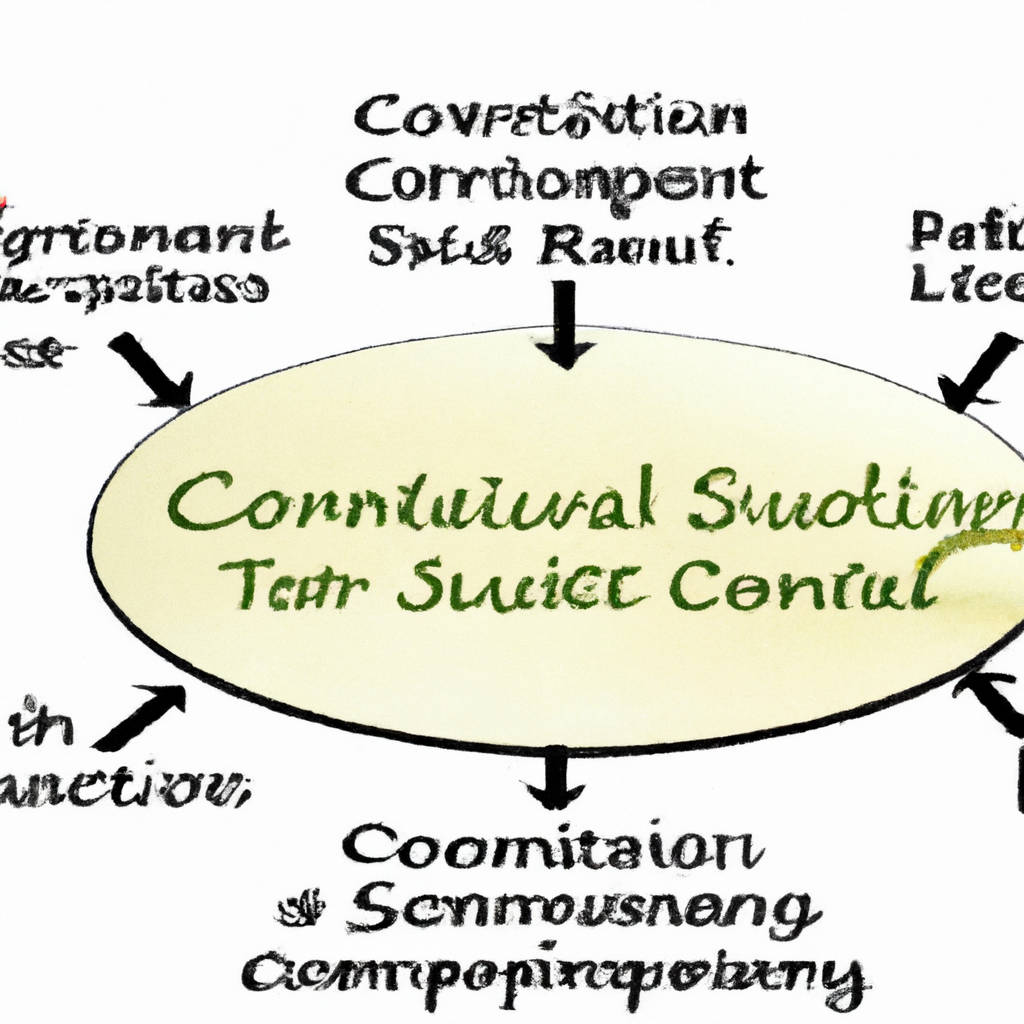Becoming a consultant requires a structured approach that involves careful planning, gaining relevant experience, and building a strong network. The first step in this process is to identify your area of expertise and passion. This will help you narrow down your focus and target specific industries or clients. Once you have determined your niche, it is important to gain experience in that field through internships, freelance work, or volunteer opportunities. This hands-on experience will not only enhance your skills but also provide you with valuable insights into the industry.
After gaining relevant experience, the next step is to build a strong network of contacts. Networking is a crucial aspect of becoming a successful consultant as it can open doors to new opportunities and clients. Attend industry events, conferences, and seminars to meet potential clients and collaborators. Additionally, utilize social media platforms such as LinkedIn to connect with professionals in your field and showcase your expertise.
Once you have established a solid foundation of experience and contacts, it is important to create a compelling portfolio that highlights your skills and achievements. Your portfolio should include case studies, testimonials, and examples of your work to demonstrate your expertise to potential clients. Additionally, consider obtaining certifications or qualifications in your field to further enhance your credibility as a consultant.
When you are ready to start consulting, it is important to develop a clear business plan that outlines your goals, target market, pricing strategy, and marketing tactics. A well-thought-out business plan will help you stay focused and organized as you navigate the challenges of starting your consulting business. Additionally, consider investing in tools and resources that will help you manage your business efficiently, such as project management software, accounting software, and marketing tools.
As you begin working with clients, it is important to maintain a high level of professionalism and integrity. Delivering high-quality work and exceeding client expectations will help you build a strong reputation and attract new clients through word-of-mouth referrals. Additionally, consider seeking feedback from clients to continuously improve your services and address any concerns or issues that may arise.
In conclusion, becoming a successful consultant requires a structured approach that involves careful planning, gaining relevant experience, building a strong network, creating a compelling portfolio, developing a clear business plan, and maintaining professionalism and integrity. By following these steps and staying committed to your goals, you can establish yourself as a reputable consultant in your field and achieve long-term success in your consulting career.

Choose Your Area of Expertise
When it comes to choosing your area of expertise, it is important to consider your passions and strengths. By focusing on a specific area that you are knowledgeable and skilled in, you can become an expert in that field and provide valuable insights and solutions to others. Whether it is in technology, healthcare, finance, or any other industry, honing your expertise can lead to a successful and fulfilling career.
By immersing yourself in a specific area, you can develop a deep understanding of the complexities and nuances of that field, allowing you to make informed decisions and offer innovative solutions. It is important to continuously learn and grow in your chosen area of expertise, staying up-to-date on the latest trends and developments to maintain your competitive edge.
By becoming an expert in your chosen field, you can position yourself as a valuable resource and leader, making a positive impact and achieving success in your career. Ultimately, choosing your area of expertise is a personal decision that should align with your interests and strengths, allowing you to pursue a fulfilling and rewarding career path.
Gain Experience and Expertise
As individuals progress in their careers, gaining experience and expertise is crucial for success. By immersing themselves in various projects and challenges, individuals can develop a deep understanding of their field and enhance their skills. This hands-on experience allows them to navigate complex situations with confidence and proficiency. Additionally, expertise is built over time through continuous learning and self-improvement.
By seeking out opportunities to expand their knowledge and skills, individuals can stay ahead of industry trends and remain competitive in their field. Moreover, gaining experience and expertise can open doors to new opportunities and career advancement. Employers value professionals who demonstrate a strong track record of success and a deep understanding of their craft. By continuously seeking out opportunities to learn and grow, individuals can position themselves as experts in their field and stand out among their peers.
In conclusion, gaining experience and expertise is a key component of professional growth and success. It allows individuals to deepen their understanding of their field, enhance their skills, and position themselves for career advancement. By embracing challenges and seeking out opportunities for growth, individuals can develop the expertise needed to excel in their careers and achieve their goals.

Identify Your Consulting Services
Identifying your consulting services is essential for establishing a clear and focused business strategy. By clearly defining the specific services you offer, you can effectively communicate your expertise to potential clients and differentiate yourself from competitors. This process involves assessing your skills, experience, and areas of expertise to determine the unique value you can provide to clients.
Whether you specialize in financial consulting, marketing strategy, or organizational development, it is important to clearly articulate the services you offer and the benefits they can bring to clients. By clearly defining your consulting services, you can attract clients who are seeking your specific expertise and increase the likelihood of successful engagements.
Additionally, identifying your consulting services can help you streamline your marketing efforts, target your ideal clients, and optimize your business operations. Ultimately, by clearly defining and communicating your consulting services, you can position yourself as a trusted and valuable resource for clients seeking expertise in your specific area of focus.
Develop a Business Plan
Developing a business plan is crucial for any entrepreneur looking to start or grow their business. A well-thought-out plan serves as a roadmap for the business, outlining its goals, strategies, and financial projections. It helps to clarify the direction of the business and identify potential obstacles that may arise along the way.
By conducting market research and analyzing the competition, a business plan can help identify opportunities for growth and differentiation. Additionally, a business plan is essential for attracting investors or securing financing, as it demonstrates a clear understanding of the market and a solid plan for achieving success.
It also serves as a tool for monitoring progress and making adjustments as needed to ensure the business stays on track. In essence, a business plan is a key tool for entrepreneurs to set themselves up for success and navigate the challenges of starting and growing a business.

Build Your Professional Network
Building a strong professional network is essential for success in any industry. By connecting with like-minded individuals and cultivating relationships with people who can provide valuable insights and opportunities, you can expand your knowledge base and open doors to new career prospects. Networking allows you to learn from others’ experiences, share your own expertise, and collaborate on projects that can lead to professional growth and development.
Whether attending industry events, joining online networking groups, or reaching out to colleagues for advice, building a solid network of contacts can help you stay informed about industry trends, gain access to job openings, and establish a reputation as a trusted and reliable professional. Networking is not just about making connections for personal gain, but about creating a community of support and collaboration that can benefit everyone involved.
By actively engaging with others in your field, you can build relationships that will not only enhance your career prospects but also provide a sense of camaraderie and belonging within your professional community. In today’s competitive job market, having a strong network of contacts can make all the difference in advancing your career and achieving your professional goals. So take the time to invest in building and nurturing your professional network – you never know where it may lead you.
Create a Strong Online Presence
Creating a strong online presence is essential for individuals and businesses looking to connect with their target audience and stand out in a crowded digital landscape. This can be achieved through a variety of strategies, such as developing a professional and visually appealing website, engaging regularly with followers on social media platforms, and producing high-quality content that showcases expertise and knowledge in a particular area.
Utilizing search engine optimization (SEO) techniques can also help improve visibility and drive traffic to your online platforms. Building a strong online presence requires consistency, authenticity, and a clear understanding of your brand identity and target audience. By investing time and effort into developing and maintaining a strong online presence, you can increase brand awareness, establish credibility, and ultimately drive success in the digital world.
Additionally, utilizing online advertising and marketing techniques can further enhance your online presence and reach a wider audience. Overall, creating a strong online presence is crucial for individuals and businesses looking to thrive in the digital age and connect with customers in a meaningful way.
